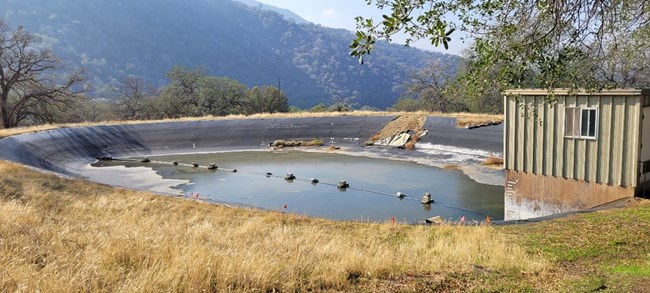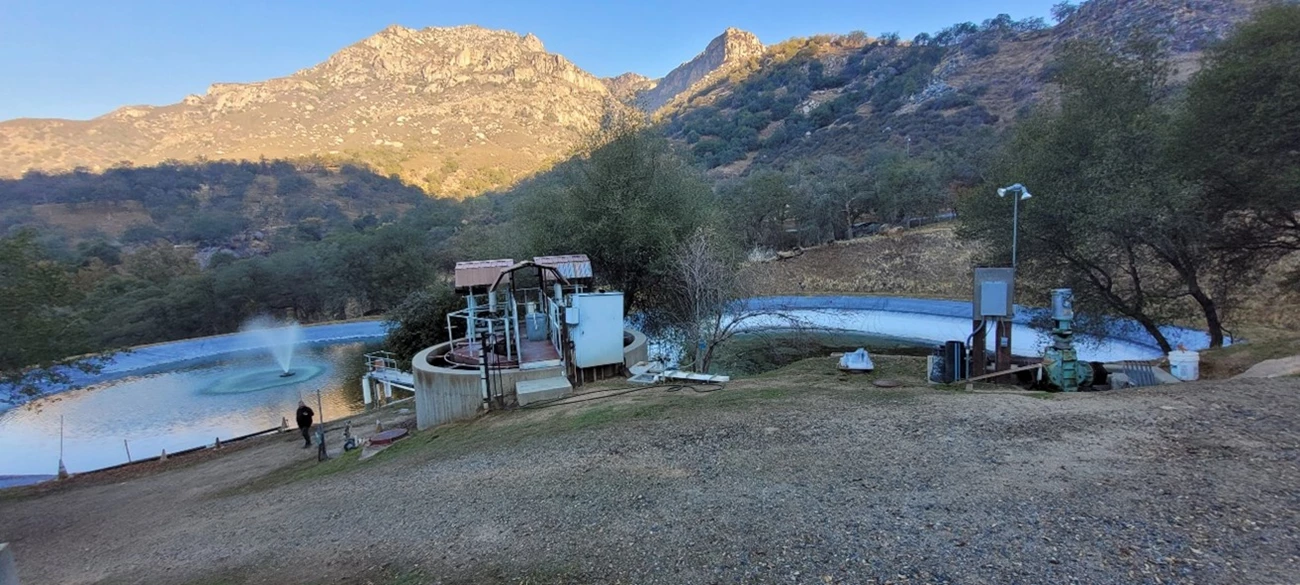Last updated: September 7, 2022
Article
Ash Mountain Wastewater Treatment Facilities to be Rehabilitated in Sequoia and Kings Canyon National Park through GAOA Funding

NPS / Jeannie Pham
In 1926, the Ash Mountain entrance became the main gateway to the park and continues to serve 1.6 million visitors each year. The Ash Mountain area's visitor center, headquarters building, fire management building, warehouse, motor pool shops, and over 40 operations/housing buildings operate off two wastewater treatment stations. Failure of one of these systems could shut down the entire Ash Mountain operations system and create sewage overflows into nearby rivers. Rehabilitation and repairs to the stations will ensure that America's second national park, its resources, staff, and visitors continue to be protected.
Project at a Glance: This $9.563 million project will rehabilitate and replace critical components of the Ash Mountain and Buckeye Housing Wastewater Treatment Plants that serve the park’s Ash Mountain headquarters and gateway area.
What are the Benefits: Sequoia and Kings Canyon National Park is America’s second national park. This means that many of its facilities have been around since the 1920s. Large updates are necessary to keep visitors, staff, and natural resources safe. This project provides safe, long-term wastewater treatment services for the entire Ash Mountain area and its facilities. This project also prevents river pollution that would occur if one of facilities were to shut down or fail.
Project Purpose and Goals
- Rehabilitate and replace critical components of two deteriorated wastewater treatment facilities (including mechanical/electrical controls and monitoring systems)
- Correct electrical and fire code violations to make the facility safer to operate and reduce liability for fines associated with existing code violations
- Invest in high-quality renovations to ensure that the facilities remain in good condition for several decades
- Replace the head-works, overflow, and chlorination systems
- Rehabilitate the treatment dosing building and disposal fields
- Repave the associated access roads
- Repair fencing and signs
- Correct $8.773 million of deferred maintenance and repairs
- Protect visitor and employee health and safety through high quality wastewater treatment
- Protect the Middle Fork of the Kaweah River from potential sewage spills and pollution

NPS / Jeannie Pham
Current Status
Final Construction Documents are underway and a construction contract is anticipated to be awarded in spring of 2023.
